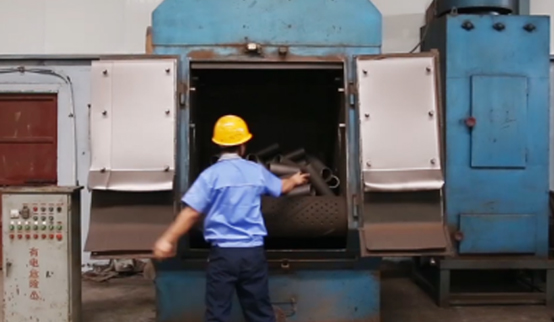 Afrikaans
Afrikaans  Albanian
Albanian  Amharic
Amharic  Arabic
Arabic  Armenian
Armenian  Azerbaijani
Azerbaijani  Basque
Basque  Belarusian
Belarusian  Bengali
Bengali  Bosnian
Bosnian  Bulgarian
Bulgarian  Catalan
Catalan  Cebuano
Cebuano  Corsican
Corsican  Croatian
Croatian  Czech
Czech  Danish
Danish  Dutch
Dutch  English
English  Esperanto
Esperanto  Estonian
Estonian  Finnish
Finnish  French
French  Frisian
Frisian  Galician
Galician  Georgian
Georgian  German
German  Greek
Greek  Gujarati
Gujarati  Haitian Creole
Haitian Creole  hausa
hausa  hawaiian
hawaiian  Hebrew
Hebrew  Hindi
Hindi  Miao
Miao  Hungarian
Hungarian  Icelandic
Icelandic  igbo
igbo  Indonesian
Indonesian  irish
irish  Italian
Italian  Japanese
Japanese  Javanese
Javanese  Kannada
Kannada  kazakh
kazakh  Khmer
Khmer  Rwandese
Rwandese  Korean
Korean  Kurdish
Kurdish  Kyrgyz
Kyrgyz  Lao
Lao  Latin
Latin  Latvian
Latvian  Lithuanian
Lithuanian  Luxembourgish
Luxembourgish  Macedonian
Macedonian  Malgashi
Malgashi  Malay
Malay  Malayalam
Malayalam  Maltese
Maltese  Maori
Maori  Marathi
Marathi  Mongolian
Mongolian  Myanmar
Myanmar  Nepali
Nepali  Norwegian
Norwegian  Norwegian
Norwegian  Occitan
Occitan  Pashto
Pashto  Persian
Persian  Polish
Polish  Portuguese
Portuguese  Punjabi
Punjabi  Romanian
Romanian  Russian
Russian  Samoan
Samoan  Scottish Gaelic
Scottish Gaelic  Serbian
Serbian  Sesotho
Sesotho  Shona
Shona  Sindhi
Sindhi  Sinhala
Sinhala  Slovak
Slovak  Slovenian
Slovenian  Somali
Somali  Spanish
Spanish  Sundanese
Sundanese  Swahili
Swahili  Swedish
Swedish  Tagalog
Tagalog  Tajik
Tajik  Tamil
Tamil  Tatar
Tatar  Telugu
Telugu  Thai
Thai  Turkish
Turkish  Turkmen
Turkmen  Ukrainian
Ukrainian  Urdu
Urdu  Uighur
Uighur  Uzbek
Uzbek  Vietnamese
Vietnamese  Welsh
Welsh  Bantu
Bantu  Yiddish
Yiddish  Yoruba
Yoruba  Zulu
Zulu conical roller
Understanding Conical Rollers Design, Applications, and Advantages
Conical rollers are specialized mechanical components widely utilized in various industrial applications due to their unique design and functional characteristics. These rollers are shaped like a truncated cone, which allows them to guide and transfer loads effectively, particularly in configurations that require precise alignment and movement.
Design and Structure
The design of conical rollers features a tapered surface, which enables seamless contact with other mechanical parts, such as conveyor systems, shafts, and bearings. The cone shape helps distribute the weight evenly, reducing wear and minimizing friction during operation. Typically crafted from high-strength materials like steel or composite substances, conical rollers can endure considerable pressure and resist abrasion, making them ideal for heavy-duty applications.
The manufacturing process of these rollers often involves precision machining, ensuring that each unit meets strict tolerances and quality standards. This precision is crucial for maintaining balance and stability in various applications. The conical shape allows for an easier flow of materials and a more controlled movement, which can be essential in scenarios requiring high speed and efficiency.
Applications
Conical rollers are leveraged in several industrial sectors, including manufacturing, transportation, and automotive. They are commonly found in
1. Conveyor Systems In material handling systems, conical rollers act as key components that facilitate the smooth movement of goods. Their unique design helps to guide the materials while also supporting their weight, thereby enhancing the overall efficiency of the conveyor.
2. Machinery and Equipment Conical rollers play a significant role in machines that require precise motion transfer. They are integral to the functionality of various types of conveyor belts, assembly lines, and robotic arms, delivering reliable performance when moving components or products from one point to another.
3. Automotive Industry In vehicles, conical rollers are utilized in wheel assemblies, braking systems, and transmission units. Their ability to provide stability and support under dynamic loads makes them crucial for safety and performance.
4. Aerospace and Defense Due to their lightweight and durable nature, conical rollers are increasingly being used in aerospace applications, where they contribute to the effectiveness of flight control systems and other critical machinery.
conical roller

5. Agricultural Equipment These rollers are also used in farming machinery, helping to transport goods such as crops and produce while ensuring minimal damage and maximum efficiency.
Advantages
The advantages of conical rollers extend beyond their design and applications. Here are some key benefits
- Load Distribution The tapered shape allows for better load distribution, which reduces the strain on machinery and extends the lifespan of components.
- Reduced Friction The conical design minimizes friction between moving parts, leading to smoother operation and less heat generation, which can enhance energy efficiency.
- Versatility Due to their design, conical rollers can be employed in a wide range of applications, making them an invaluable asset in various industries.
- Enhanced Stability The unique shape contributes to improved stability during operation, which is especially important in dynamic environments where rapid movements occur.
- Lower Maintenance Costs With reduced wear and tear on both the rollers and machinery they interact with, businesses can enjoy lower maintenance and replacement costs over time.
Conclusion
Conical rollers represent a significant innovation in the realm of mechanical components, offering unique advantages that cater to a wide array of industrial needs. With ongoing advancements in materials and manufacturing techniques, the future of conical roller technology looks promising. As industries continue to evolve, the demand for high-performance, efficient mechanical solutions will likely grow, reinforcing the importance of conical rollers in modern engineering applications. By understanding their design, applications, and benefits, engineers and industry professionals can make informed decisions that enhance operational capabilities and drive productivity.
-
Revolutionizing Conveyor Reliability with Advanced Rubber Lagging PulleysNewsJul.22,2025
-
Powering Precision and Durability with Expert Manufacturers of Conveyor ComponentsNewsJul.22,2025
-
Optimizing Conveyor Systems with Advanced Conveyor AccessoriesNewsJul.22,2025
-
Maximize Conveyor Efficiency with Quality Conveyor Idler PulleysNewsJul.22,2025
-
Future-Proof Your Conveyor System with High-Performance Polyurethane RollerNewsJul.22,2025
-
Driving Efficiency Forward with Quality Idlers and RollersNewsJul.22,2025





























